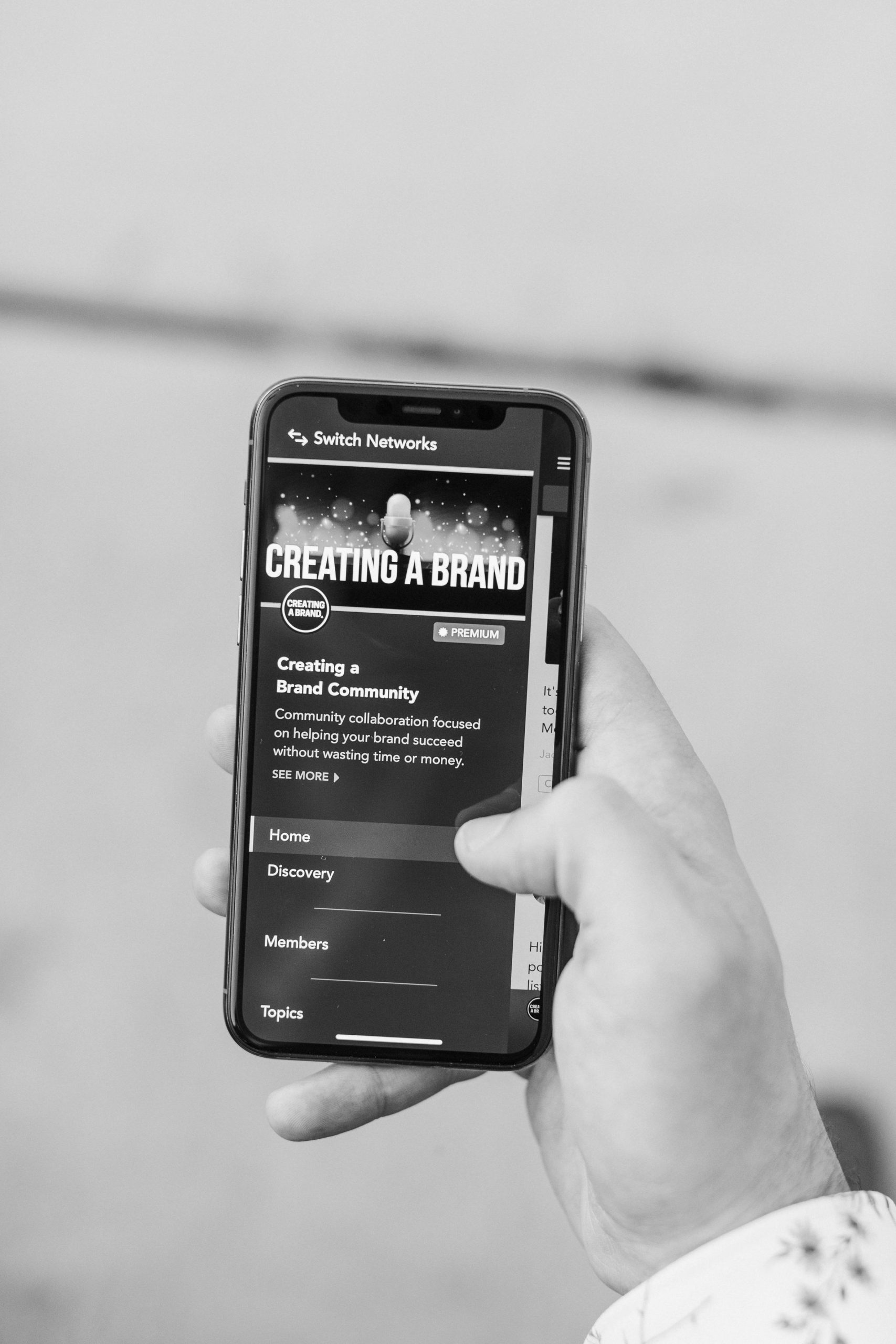Imagine being able to reach potential customers at any time, regardless of their location or activity – that’s the power of mobile marketing. From push notifications and location-based targeting to personalized messaging, this form of advertising allows businesses to engage with consumers in ways never before possible. On the flip side, concerns over privacy invasion and ad fatigue have led some individuals to become wary of mobile marketing tactics. In this article, we’ll explore six key advantages and disadvantages of mobile marketing, shedding light on both sides of this dynamic and rapidly evolving promotional landscape.
Introduction: Understanding Mobile Marketing
Mobile marketing is a dynamic and rapidly evolving field that has revolutionized how businesses connect with their target audience. Understanding mobile marketing is essential for any modern business looking to stay ahead in the digital marketplace. Mobile marketing involves reaching consumers through their mobile devices, including smartphones and tablets, using various tactics such as mobile-optimized websites, apps, social media ads, and SMS messaging.
One key aspect of understanding mobile marketing is recognizing the unique opportunities it presents for personalized customer engagement. With the ability to track user behaviors and demographics on mobile devices, businesses can tailor their marketing strategies to individual preferences and interests. This level of personalization allows for more effective targeting of potential customers, leading to higher conversion rates and ultimately increased revenue.
In addition, understanding mobile marketing means grasping its influence on consumer behavior and purchase decisions. As smartphones have become an integral part of daily life for many people, they often serve as tools for researching products or services before making purchasing decisions. This phenomenon highlights the importance of having a strong mobile presence as businesses strive to capture the attention of tech-savvy consumers who rely on their devices for information and shopping purposes.

Advantages of Mobile Marketing
With the majority of web browsing now taking place on mobile devices, mobile marketing offers an unparalleled advantage in reaching and engaging with a larger audience. The ability to target specific demographics based on location, interests, and online behavior provides marketers with a powerful tool for delivering relevant and timely messages. Furthermore, the use of push notifications allows businesses to maintain constant communication with their customers, increasing brand awareness and driving customer loyalty.
Mobile marketing also offers the advantage of real-time data tracking and analysis. Marketers can gain valuable insights into consumer behavior, such as purchase patterns and app usage, allowing for more targeted and effective campaigns. Additionally, the integration of mobile payment systems enables seamless transactions directly from marketing promotions or ads, reducing barriers to purchase for consumers. These advantages demonstrate how mobile marketing has revolutionized the way businesses connect with their target audiences in an increasingly digital world.
Wide Reach: Access to a Large Audience
One of the most compelling advantages of mobile marketing is its ability to reach a vast audience. With the majority of the global population owning smartphones, mobile marketing provides businesses with an expansive platform to connect with potential consumers. This wide reach allows companies to target diverse demographic groups and geographical locations, thereby increasing their brand visibility and customer engagement.
Moreover, through various mobile channels such as social media, apps, and SMS messaging, businesses can tailor their marketing strategies to specific audiences based on factors like location, behavior, and preferences. This targeted approach not only broadens the reach but also enhances the effectiveness of marketing efforts by delivering personalized messages that resonate with different segments of the audience. As a result, mobile marketing offers unparalleled access to an extensive and diverse pool of potential customers, enabling businesses to significantly expand their market presence and influence.

Personalization: Tailoring messages to individuals
Personalization in mobile marketing involves tailoring messages and content to individual customers based on their preferences, behavior, and demographics. This customization not only creates a more personalized experience for users but also increases the chances of engagement and conversion. With the abundance of data available through mobile devices, businesses can leverage this information to deliver targeted promotions, product recommendations, and personalized communications that resonate with each customer on a personal level.
However, while personalization can significantly enhance the effectiveness of mobile marketing efforts, it also comes with certain challenges. One disadvantage is the potential intrusion into user privacy if not handled appropriately. Customers are increasingly sensitive to how their personal data is used, making it crucial for businesses to strike a balance between providing personalized experiences and respecting user privacy. Additionally, creating customized content for each individual requires significant resources and advanced technological capabilities which may not be feasible for all businesses to implement effectively.
Instantaneous: Real-time communication with customers
With the rise of mobile marketing, instantaneous real-time communication with customers has become a game-changer for businesses. The ability to engage in instant conversations with consumers allows for personalized and immediate responses to their inquiries and concerns. This level of responsiveness not only builds trust and loyalty but also enhances the overall customer experience by making them feel heard and valued. Additionally, real-time communication enables businesses to adapt quickly to market trends, address issues promptly, and even seize opportunities as they arise, providing a competitive edge in the fast-paced digital landscape.
Moreover, leveraging real-time communication through mobile marketing can significantly boost sales and conversions. By reaching customers at the exact moment when they are most receptive to making purchasing decisions, businesses can capitalize on impulse buying behaviors and drive higher engagement. Furthermore, real-time interaction allows for targeted messaging based on customer behavior or location, leading to more relevant and impactful marketing efforts that resonate with individual preferences. However, it’s essential for businesses to strike a balance in their use of real-time communication as excessive or intrusive messages can potentially backfire and result in customer disengagement or opt-outs from marketing communications.
Disadvantages of Mobile Marketing
While mobile marketing has its share of advantages, there are also several disadvantages that businesses should consider. One significant drawback is the potential for privacy concerns and data protection issues. With the increasing reliance on smartphones for daily activities, consumers are becoming more attuned to their privacy rights and may feel uncomfortable with the level of personal data collection involved in mobile marketing strategies.
Another disadvantage of mobile marketing is its susceptibility to ad fatigue. As users spend more time on their mobile devices, they are bombarded with a high volume of advertisements, which can lead to saturation and desensitization. This oversaturation could result in decreased effectiveness of mobile marketing efforts as consumers become immune to advertising messages. Additionally, the smaller screen size of mobile devices limits the creativity and visual impact that can be achieved compared to traditional advertising mediums, making it challenging for brands to stand out amidst the clutter.
Privacy Concerns: Intrusion and data security issues
Privacy concerns and data security issues are significant drawbacks of mobile marketing. With the increasing amount of personal information stored on mobile devices, there is a constant worry about intrusion and unauthorized access to this sensitive data. Additionally, the risk of data breaches and cyber-attacks targeting mobile marketing platforms raises serious concerns for both businesses and consumers.
These privacy challenges can erode consumer trust in mobile marketing efforts, as users become more vigilant about sharing their personal information. As a result, businesses may find it increasingly difficult to gather accurate customer data and deliver personalized advertising without raising red flags about privacy violations. To maintain consumer trust, marketers must prioritize data security and implement robust encryption protocols to safeguard user information against potential threats.

Technical Limitations: Compatibility and device-specific challenges
When it comes to mobile marketing, technical limitations can pose significant challenges. The diversity of devices and operating systems in the mobile landscape often leads to compatibility issues. Marketers have to ensure that their content is optimized for various screen sizes, resolutions, and operating systems, which can be a daunting task.
Moreover, device-specific challenges further complicate the situation. Different devices have varying capabilities and functionalities, making it essential for marketers to tailor their strategies accordingly. For instance, some features may be supported on one device but not on another, requiring marketers to make strategic decisions about which features to prioritize based on the target audience’s device preferences. Despite these hurdles, overcoming technical limitations is critical for successful mobile marketing campaigns.
Consumer Fatigue: Overexposure and annoyance
Consumer fatigue is a growing concern in the world of mobile marketing. With the constant bombardment of ads, emails, and notifications, consumers are becoming overexposed and annoyed. This saturation of marketing messages can lead to a decline in engagement and even push potential customers away.
Marketers need to be mindful of not overwhelming their audience with excessive content, as it can backfire and create negative associations with their brand. Finding the balance between showcasing products or services and respecting consumers’ boundaries is crucial for maintaining positive relationships with their target audience. By being more selective and strategic in their approach, marketers can avoid contributing to consumer fatigue while still effectively reaching their target demographics.
As the digital space becomes increasingly crowded with promotional material, addressing consumer fatigue has become essential for businesses aiming to stand out in a saturated market. Understanding that quality trumps quantity when it comes to engaging consumers will allow marketers to craft more impactful and effective mobile marketing strategies.
Conclusion: Weighing the pros and cons of mobile marketing
In conclusion, the pros and cons of mobile marketing present a complex and nuanced landscape for businesses to navigate. While the reach and targeting capabilities of mobile marketing are undeniable advantages, the potential for consumer privacy concerns and ad fatigue must be carefully considered. Mobile marketing offers unparalleled opportunities for personalization and real-time engagement with consumers, yet it also requires careful monitoring to ensure that messaging remains effective.
As businesses weigh the potential benefits against potential drawbacks of mobile marketing, it becomes clear that a strategic approach is essential. By leveraging the strengths of mobile platforms while mitigating the risks associated with intrusive advertising, companies can truly harness the power of this dynamic channel. Ultimately, finding a balance between reaching target audiences effectively and respecting their privacy will be crucial in maximizing the impact of mobile marketing efforts. With thoughtful consideration and adaptation to consumer preferences, businesses can thrive in an evolving digital landscape while fostering positive relationships with their audience.
